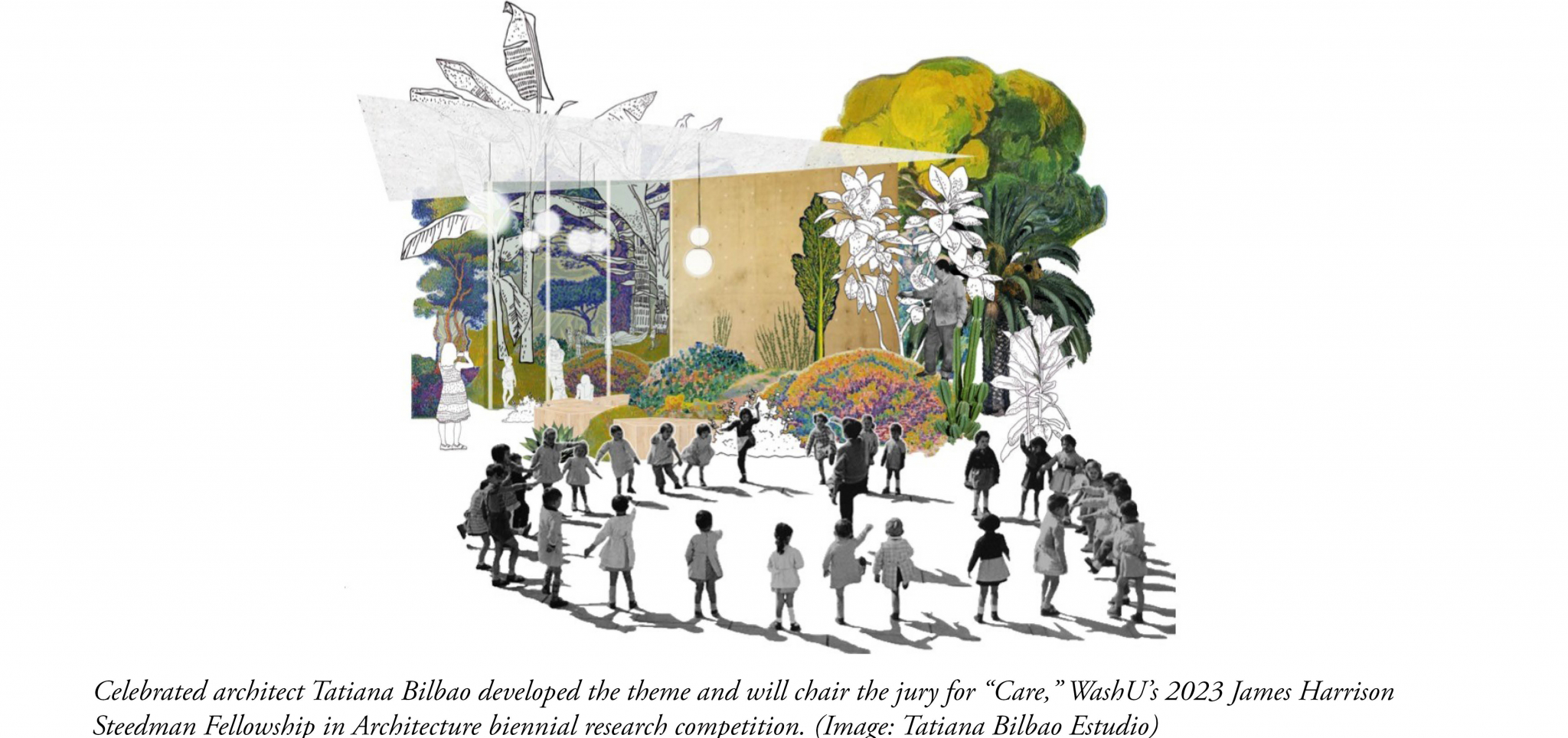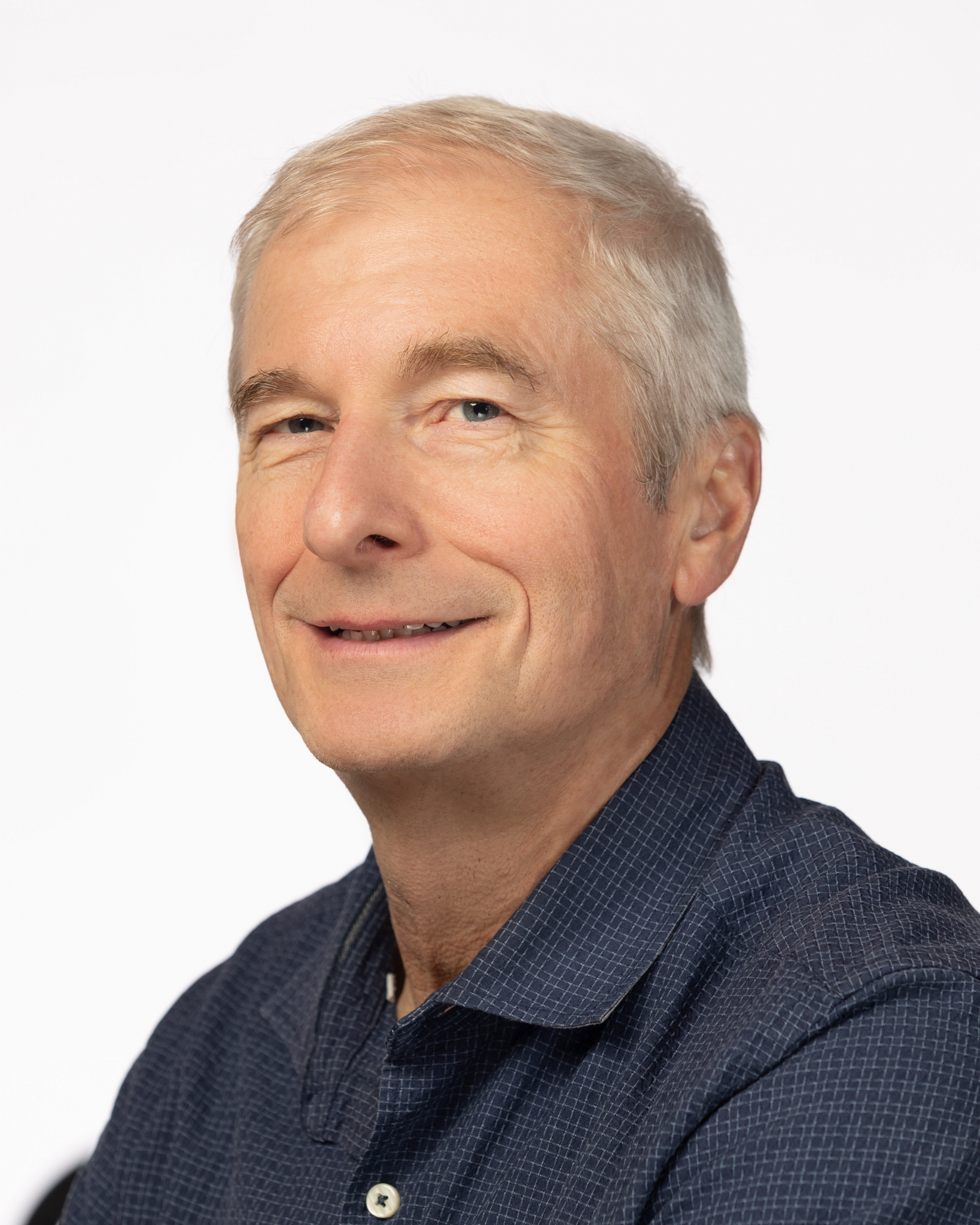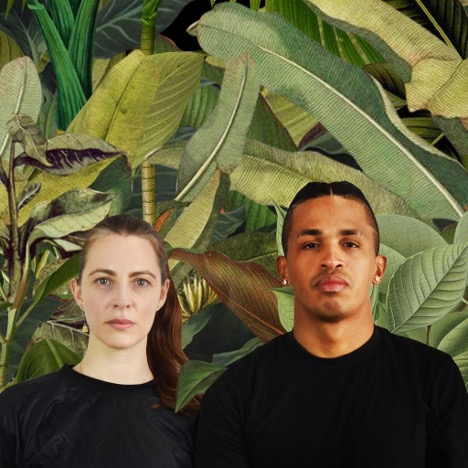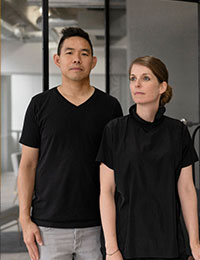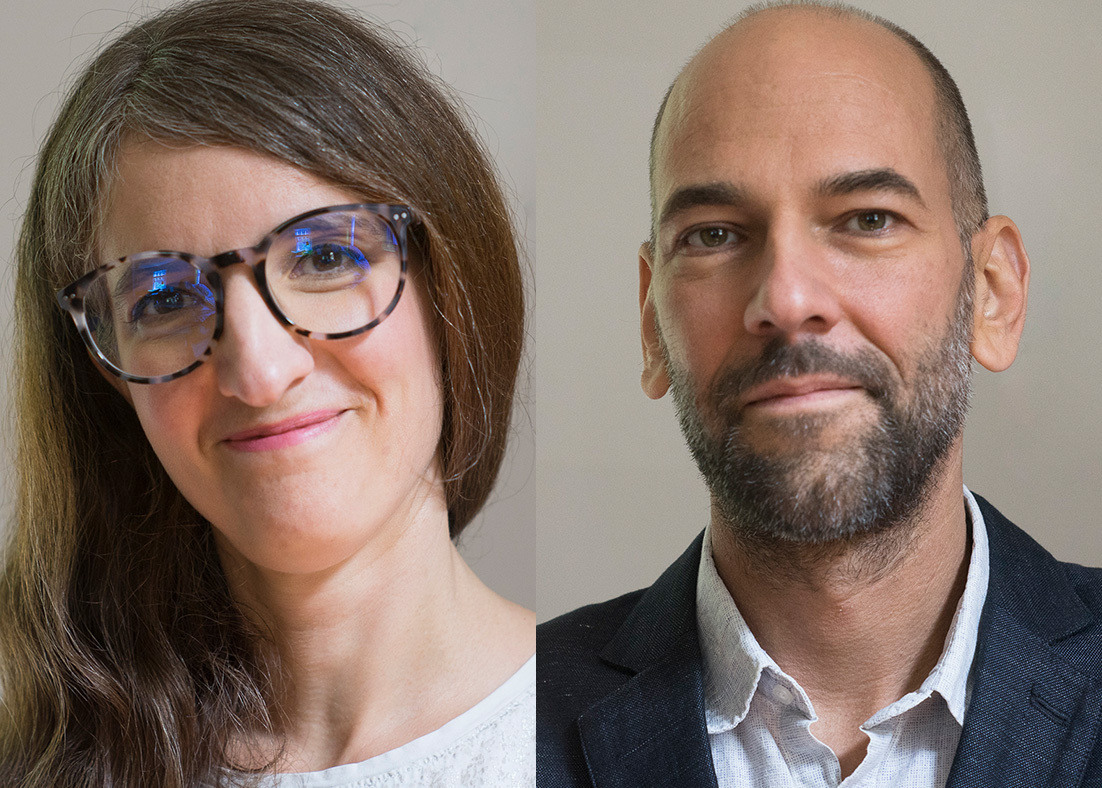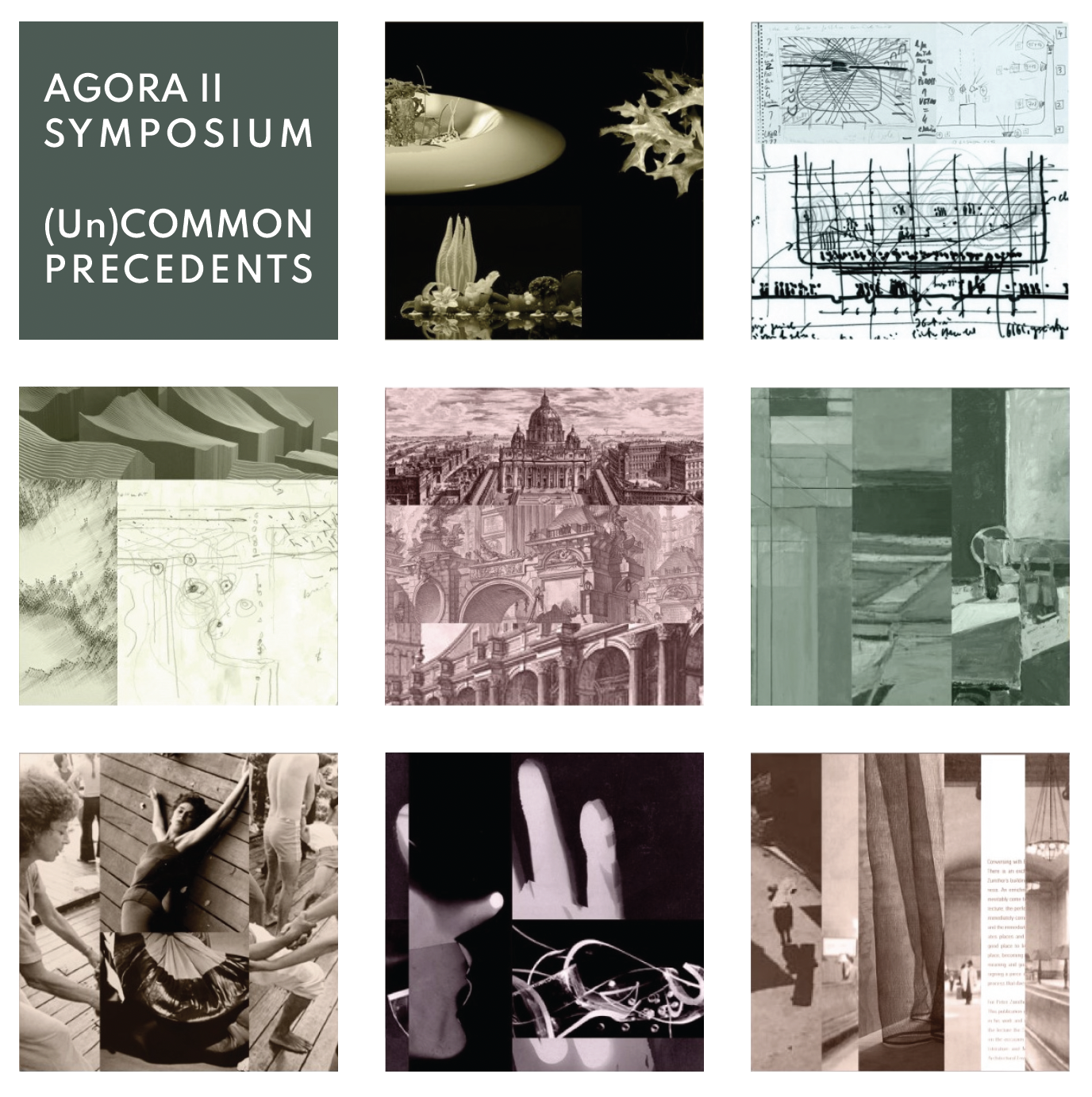University of Tennessee, Knoxville
New Hires at the University of Tennessee, Knoxville’s School of Architecture
The University of Tennessee, Knoxville’s School of Architecture is delighted to announce the following new hires:
Frances Hsu as Assistant Professor on tenure track. Dr. Hsu is a licensed architect, designer and scholar who pursues international, cross-disciplinary, and design-driven research. She works at multiple scales and challenges the status quo to address the complexities of architecture and urbanism. Her research and teaching coalesce around modes of “expanded” practice. Frances’s current research investigates Rem Koolhaas’s thinking and design methods in the early years of OMA. She also explores architecture through multiple lenses including, “The Politics of Food,” studies of Housing and Politics, and Digital Pedagogies for the Pandemic Era. Frances earned Her PhD at the Institute for the History and Theory of Architecture/ETH Zürich, her M.Arch. at Harvard University Graduate School of Design where she received a Wheelwright Fellowship for the study of modernist landscape, and her B.S. Arch. at the University of Virginia. She has taught at Marywood University School of Architecture, University of North Carolina Charlotte, and Texas A&M University, as well as several international institutions.
Jeremy Magner as Assistant Professor on tenure track. In his teaching, research, and practice, Jeremy challenges conventional boundaries between designer and builder. He aims to develop a deeper engagement with architecture’s means of production by addressing its roots in regional cultures of making. Jeremy’s work results in a new means of collaboration through the study of the Lithic, Metallic, and Xylological forms of materiality. He earned his M. Arch. at Georgia Tech and a B.S.Arch. at University at Buffalo. Jeremy was the Tennessee Architecture Fellow 2020-22 and also a Lecturer at UTK COAD, prior to which he was a lecturer in the College of Architecture and Environmental Design at Cal Poly San Luis Obispo. In 2015, he was selected as an Artist-in-Residence/Affiliated Artist at AUTODESK Pier 9 Workshop and for many years managed project fabrication and design for notable firms including robotics-leader Machineous, Gensler, and Morphosis.
Micah Rutenberg as Assistant Professor on tenure track. Micah’s teaching and research addresses the infrastructural, technological, and ecological arrays that shape patterns of urbanization and territorial administration in the Tennessee Valley. He was the Tennessee Architecture Fellow 2017-18 and has been a Lecturer in the School of Architecture since then. His research includes the Techno-Scientific Petting Zoo of the Anthropogenic Sublime, a speculative design-research project that seeks to re-frame the relationship between natural, cultural, and technological systems surrounding Great Smoky Mountains National Park. Micah is currently completing a book with Dr. Avigail Sachs, The Logistics of Mechanized Landscapes: Mapping the TVA, which is a culmination of his computational mapping studies to expose the geospatial lineage of the Tennessee Valley Authority in the period from 1933-1953. Micah earned his M.S. in Design Research, M.Arch., and B.S. Arch. from the University of Michigan. Prior to his arrival at the University of Tennessee, Micah taught at Woodbury University and Arizona State University.
Mark Stanley as Assistant Professor on tenure track. Mark is the co-founder of StudioMARS, a speculative design-research practice. Mark’s practice and research runs full speed towards the strange, weird, problematic, curious, extreme and the uncertain. He expects that architecture participate in the future, and he does this by critically cultivating “the now.” His recent project, “Manhattan Project 2.0, ‘Post-Nuclear Blooms’,” will be included in the forthcoming publication Regional Globalism, based on the symposium series of the same name. Mark has also designed publications, including the forthcoming Speculative Coolness and Pamphlet Architecture 34. Prior to his arrival in Tennessee, Mark taught at Woodbury University School of Architecture and the University of Michigan, where he earned both his M.S. in Design Research and M.Arch., and his B.S.Arch. from Texas Tech University.
Catty Dan Zang as Assistant Professor on tenure track. Catty is the founder of Temporary Office, a practice that explores architecture and digital technology through the production of exhibitions, objects, drawings, animations, installations, and writings. Her work has been exhibited at the MetroLab at Florida Atlantic University (2023), the ‘T’ Space, London Design Festival, Carnegie Museum of Arts, A+D Museum, and Harvard GSD. She earned her BArch from Tsinghua University, a MArch with Honors from Washington University in St. Louis, and a MDes in Technology from Harvard University Graduate School of Design where she was the 2017 recipient of the Daniel L. Schodek Award for Technology and Sustainability. Catty most recently taught at UNC Charlotte.
Julie Kress as the new Tennessee Architecture Fellow. Julie states that her proposed project, “Disorderly Constructs, … [is] an ongoing exploration of how animation and architecture have intersected historically and where the disciplines might align in the future. … Animation can conjure up impossible worlds that feel tangible, and the ability to manufacture worlds extends past the computer screen.” Prior to her arrival at as a Lecturer at UTK, Julie was a Teaching Fellow at the Rhode Island School of Design where she received her M.Arch. as well as the Super Jury Thesis Award. Julie earned her B.S.Arch. from Temple University.
Washington University in St. Louis
Sam Fox School, AIA St. Louis announce ‘Care,’ 2023 Steedman Competition
$75,000 fellowship for emerging architects among nation’s largest
Architecture shelters and protects. Yet too often, the built environment also perpetuates entrenched biases as well as a domineering and extractive view of the natural world.
But what if architecture were rooted in a more holistic ethos? What if architecture tended not only to the needs of the body, but to the health of society and of the planet?
That’s the question posed by “Care,” the 2023 James Harrison Steedman Fellowship in Architecture. The biennial research competition invites early-career architects from around the world to investigate and reimagine the fundamental systems, facilities and services that underlie contemporary life.
The fellowship is organized by the Sam Fox School of Design & Visual Arts at Washington University in St. Louis, in concert with AIA St. Louis, a chapter of the American Institute of Architects. The winning proposal will receive $75,000 to support up to a year of international travel and research.
“For nearly a century, the Steedman Fellowship has supported the careers of young architects entering the profession,” said Chandler Ahrens, associate professor of architecture at the Sam Fox School and a member of the Steedman governing committee. “This year’s theme, developed by internationally recognized architect and designer Tatiana Bilbao, proposes a notion of responsible design that is at once climate-conscious and human-forward.”
Established in 1926, the Steedman Fellowship is one of the oldest and most prestigious architectural awards in the United States. Seeking to promote both creative design thinking and cross-cultural exchange, the fellowship is open to practicing architects worldwide — not just those affiliated with the Sam Fox School — who have received an accredited degree in architecture within the past eight years.
Jury and applications
Bilbao, who also chairs the competition jury, is founding principal of Tatiana Bilbao Estudio. The practice, based in Mexico City, is widely celebrated for its multidisciplinary perspective and careful attention to surrounding context across a variety of project scales and typologies. These range from affordable and social housing to cultural and institutional buildings to the recent masterplan for On Olive, a 3.5-acre residential development in midtown St. Louis.
“The act of building defines our relationship with the ecosystem to which we belong,” Bilbao wrote in her call for Steedman proposals. “To our peril, and in many ways, architecture has become a powerful tool for the continuity of the different forms of exploitation, value extraction and discrimination.
“Knowing now the consequences of our recklessness, how might we begin this reconsideration?” Bilbao continued. “How might we bring about needed platform for a systemic change that understands this primary necessity?”
Other jurors include Elisa Iturbe, co-founder of Outside Development and assistant professor at The Cooper Union; Ethel Baraona Pohl, co-founder of dpr-barcelona; Kotchakorn Voraakhom, founding principal of Landprocess and designer-in-residence with the Sam Fox School and the Pulitzer Arts Foundation; and Michael Willis, founding principal of MWA Architects and a visiting professor in the Sam Fox School.
Application materials will include a portfolio, research proposal, budget and time frame. Extra consideration will be given to creative proposals that minimize carbon footprint. Fellows must be able to complete their projects within 18 months of receiving the award and must be available afterward to share their research with the Washington University and St. Louis AIA architectural communities.
Registration is now open, and proposals are due Nov. 1. For more information, visit steedmanfellowship.wustl.edu.
University of Washington
Rick Mohler, FAIA appointed Chair of the University of Washington Department of Architecture
Professor Rick Mohler was appointed chair of the Department of Architecture in the College of Built Environments at the University of Washington in June. In addition to serving as chair he will continue to teach design studios and professional practice coursework.
Throughout his career Rick has promoted just, policy-driven cities, shaped by principled design, addressing all scales of urban experience through teaching, action research, professional practice, and community engaged scholarship and service. In doing so, he has strengthened connections between the academy, profession, government, and community. Through his own practice, work with other firms, and independent collaborations, Rick has been recognized thirty-seven times in local, regional, national, and international design awards programs and design competitions. His students have been recognized twenty times in regional, national, and international student design awards and competitions. Rick received a 2019 R+D Award from Architect magazine, a 2021 ACSA/AIA Housing Design Education Award, a 2022 Place Design Award from the Environmental Design Research Association (EDRA), a 2022 AIA Small Projects Award, and the ACSA Best Paper Award in 2023. He was elevated to Fellow of the American Institute of Architects (AIA) in 2021 for achievement in education and practice. Rick is a former member of the AIA Seattle Board of Directors, former Co-Chair of the AIA Seattle Public Policy Board and former Co-Chair and current member of the Seattle Planning Commission.
University of Nebraska-Lincoln
Nicole McIntosh and Jonathan Louie join the College of Architecture faculty as Hyde Chair of Excellence
The College of Architecture is pleased to announce two Hyde Chair of Excellence faculty members will be joining the Architecture Program this academic year.
Nicole McIntosh and Jonathan Louie, co-founding partners of the Architecture Office, a Zurich based, Swiss-American practice will be teaching an M.Arch design research studio, a seminar for the fall and spring semesters and a Hyde Lecture this coming spring.
Their research and designs are influenced by images that create new contexts for architecture providing a new academic perspective for College of Architecture students. Their office engages with a variety of scales and typologies, ranging from restaurants and workspaces to exhibition designs and houses. Recent work has been exhibited at the Yale Architecture Gallery, the Kunsthaus Glarus and the 2021 Seoul Biennial of Architecture and Urbanism. They are actively engaged in contemporary architectural discourse through teaching.
Their contributions to design and research have been awarded by the 2017 Architectural League Young Architect’s Prize, the 2020 ACSA Faculty Design Award and the 2022 Swiss Art Awards. Built projects have been recognized by the 2018 and 2019 Architect’s Newspaper Best of Design Awards, the 2020 Interior Design Best of Year Awards and the 2018 Frame Awards. And their most recent publication “Swissness Applied: Learning from New Glarus” won the 2022 Deutsches Architekturmuseum Architectural Book Award.
In parallel Architecture Lab works with Architecture Office to enrich practice with new ideas through transdisciplinary research.
“We are fortunate to have Nicole and Jonathan join our program and bring their award-winning research and design practice approach into our studios and seminars,” commented David Karle, Architecture Program director.
Established in 1986, the Hyde Chair of Excellence allows the College of Architecture to attract visiting faculty of national and international distinction. The Hyde Chair of Excellence position is available to designers, architects and educators from a variety of backgrounds with outstanding and unique credentials. The visiting Hyde Chair attracts emerging voices in design from both practice and teaching. Through this endowment, renowned scholars and practitioners are invited to spend a semester or more in residence at the college directing a design studio, conducting a graduate level seminar and presenting a public lecture. The Hyde Chair also participates in various college activities and events, including studio reviews, and contributes to the general academic and design-research culture of the college. The Hyde Chair of Excellence was made possible by the generosity of Mrs. Flora Hyde in honor of the memory of her late husband, A. Leicester Hyde. Mr. Hyde was a 1925 graduate of architecture and engineering.
Since its inception, the program has hosted 65 Hyde Chairs including past chairs such as Peter Cook, Michael Sorkin, Wolf Prix, Diane Lewis, Doug Jackson, Paul Preissner, Gina Ford, Stewart Hicks, Cristina Murphy, Cruz Garcia and Nathalie Frankowski.
The Hyde Chair of Excellence visiting faculty position honors the college’s collaborative spirit and genuine interest in student learning and the pursuit of academic success.
Penn State
Stuckeman School welcomes two faculty additions to architecture department
UNIVERSITY PARK, Pa. — The Stuckeman School in the College of Arts and Architecture at Penn State has welcomed Hungary natives Orsolya Gáspár and Istvan Gyulovics as full-time faculty members in the Department of Architecture for the 2023-24 academic year.
Most recently a visiting fellow at the Form Finding Lab at Princeton Unviersity, Gáspár takes on the role of assistant professor of architecture in the Stuckeman School. Her queries in the stereotomy of masonry structures led to her involvement in the Princeton lab’s “Angelus Novus Vault” project for the 2023 Venice Biennale of Architecture.
Gáspár works on the interface of structurally informed architectural design and construction history, with a keen interest in the interdependence of geometry, topology and structural performance of spatial structures. In her research, she seeks to support sustainable building practices by ‘clever’ structural design, fueled by both vernacular and engineering tradition.
She regularly presents her work at international conferences and her research has been published in top-tier journals of the architecture field, including the International Journal or Architectural Heritage and the International Journal of Solids and Structures.
Gáspár earned her master of architecture and doctorate from the Budapest University of Technology and Economics (BME). While an assistant professor there, she co-authored a textbook on complex architectural structures.
“Orsolya Gáspár brings a wealth of expertise in the field of structurally informed architectural design and construction,” said Frank Jacobus, department head and professor of architecture. “Her dedication to sustainable building practices, which is on display in Venice, showcases her commitment to advancing the field.”
Gyulovics comes to Penn State as a lecturer with an extensive background as a practicing architect and design studio instructor. He has run Studio Konstella, a boutique office in Budapest, since 2015 with three friends from graduate school.
Materiality plays an essential role in his firm’s approach to architecture, whether working on the urban or the object (i.e., furniture, fixture) scale. The firm’s interests lie in the fine arts, such as photography, watercolor, and linocut; in craftsmanship, such as ceramics; and in furniture design. The studio regularly participates in international competitions, such as the Hungarian Architectural Museum in 2021 (Honorable Mention) and the Hungarian Pavilion for the Expo Milano 2015 (Third Place).
Gyulovics has been an adjunct lecturer at the Faculty of Architecture, BME, since 2011. His research focuses on conversion and adaptive reuse. He is interested in the possible contemporary interpretations of modernist heritage from an artistic point of view but feels strongly that keeping and transforming our existing building stock is going to be essential for a sustainable future.
Gyulovics holds a master of architecture and a post-graduate degree in architecture from the BME.
“Istvan Gyulovics has an extensive background as a practicing architect and design studio instructor, and his firm’s focus on materiality and commitment to preserving and transforming existing buildings aligns perfectly with our values here at the Stuckeman School,” said Jacobus. “We are eager to witness the impact of his extensive experience on the growth and development of our students.
Jacobus, who is beginning his first semester as professor and head of the department, continued by saying: “Orsolya and Istvan’s contributions to the realms of architecture, craftsmanship and research will undoubtedly enrich our academic community and propel us towards a more sustainable and innovative future.”
Carleton University
(Un)Common Precedents, the Agora II International Symposium
For information and registration: https://www.criptic.org/agora-2
Everyone is invited to the three-day symposium, (Un)Common Precedents, hosted by the Azrieli School of Architecture & Urbanism (ASAU).
The event is convened by Dr. Federica Goffi, Professor of Architecture, and PhD candidates Isabel Potworowski and Kristin Washco.
The free public event will be held at the ASAU from September 22 to 24, 2023, in the Pit. The event will combine keynotes, paper presentations, interdisciplinary workshops, a performance, an exhibition by architecture and music students, and a book publication.
Four keynotes, and thirty-three international speakers will come together from Canada, Chile, Ireland, Italy, New Zealand, Portugal, UK, Netherlands, United Arab Emirates, USA, South Africa, and South Korea to question how to re-examine the value of “common” precedents while exploring “(un)common” ones.
The event is divided into three themes: the intentions, the media and methods, and the reference. The symposium tackles some critical questions, which are at the core of practice: How do architects build a frame of reference? Which are the under-acknowledged and (un)common precedents that inspire architectural design in terms of diversity, culture and socio-political contexts? Is there potential in seeking architectural precedents in adjacent disciplines such as literature, music, the culinary, visual, and performing arts, and beyond?
The symposium features keynote lectures by:
-Dr. Klaske Havik (TU Delft)
-Dr. Ken Albala (University of the Pacific)
-Architect Robert Lemon
-Dr. Jesse Stewart (Carleton University)
(Un)Common Precedents is the second event in the AGORA Series. It is generously supported by professional and academic institutions, including the Social Sciences and Humanities Research Council Connection Grant (SSHRC Connection), the Public Awareness Sponsorship offered by the Ontario Association of Architects (OAA), the sponsorship of the Ottawa Regional Society of Architects (ORSA), the Royal Architectural Institute of Canada (RAIC), the Azrieli School of Architecture and Urbanism (ASAU, Faculty of Engineering and Design, Carleton University), Carleton Immersive Media Studio (CIMS), and Carleton Music (School for Studies in Art and Culture, SSAC).
The convenors appreciate the support of Dr. Sheryl Boyle and Dr. Suzanne Harris-Brandts, who co-organized two workshops with the convenors; Dr. Jesse Stewart from Carleton Music, who supported the development of a music/architecture workshop and performance with the architecture and music students; and Artengine and its artistic director, Ryan Stec, who offered support in the planning of the exhibition.
Register for the event here: https://www.criptic.org/event-details-registration/agora-ii-un-common-precedents
Updates will be posted on the CRIPTIC website and on social media @cripticollab on Instagram & Twitter.

 Study Architecture
Study Architecture  ProPEL
ProPEL 